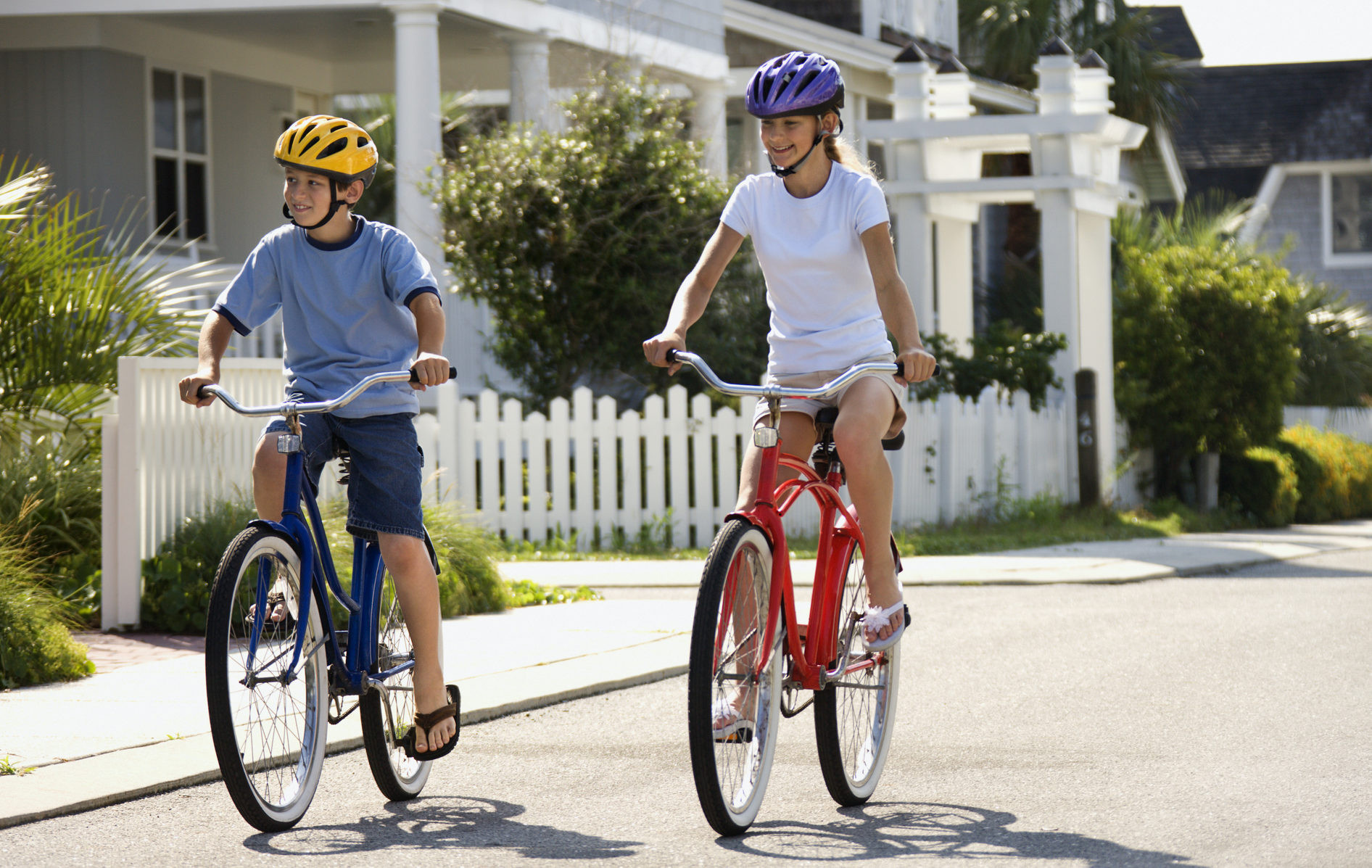4 tips for teaching your child how to ride a bike “on the road”

I’ve been a parent for six years, and I still feel like I’ve always just missed some two-week window that would easily set up my oldest for the rest of his life. First it was swimming, then play dates, then soccer. The latest was riding a bike. In August, Milo was past 5 and a half years old and ripping his Big Wheel through the neighborhood. He loved it, but I feared that I had blown the chance to teach him to ride a two-wheeler before kindergarten started.
So, me being me, I scrambled and tried to undo time. I bought him a used BMX bike and removed the pedals. He went up and down our sidewalk; the cracks and roots made that two weeks of uselessness. He kept at it, but I didn’t see balance clicking in. However, on a Thursday afternoon while we were walking on our just-repaved road, Milo picked up his feet and started rolling. By Saturday, when he was pedaling without pedals, I realized it was time to reattach the real things. Before I could finish, “Just remember that you have to…,” he said, “I got this.” And he did and he hasn’t stopped.
I’d love to take credit. The most I can claim is that I went outside with him. But I knew one thing quickly: the playground basketball court wasn’t going to contain him for long. I also know that kids can’t ever be 100% prepped — that’s the point of learning — but streets are different than soccer and even kindergarten. They come with cars, distracted drivers, and more cars.
Pata Suyemoto is an instructor at the Bicycle Riding School in Somerville, Massachusetts. She says there’s no one method for teaching how to bike in traffic, but there are fundamentals to instill: visibility, predictability, and paying attention, not always the top three priorities for a kid. And she has some suggestions for parents on how to get your child there:
- Get on a bike yourself. It’s the best way to model anything, from using crosswalks to making turns to wearing a helmet. By riding, you’ll also experience what your child is contending with. You’ll see the limited sightlines, feel the rocky paths, and, if you have someone who loves to skid to a stop, you’ll know the loose dirt before an intersection. And with that information …
- Predict routes. You have to constantly scan and make notes about challenging areas, so you can give a heads-up to your child and chart the safest course. Don’t worry so much about explaining the whys — understanding comes with maturity. Just lay out a clear plan for what you want, such as, “At this intersection, stop on this corner, press the button and look both ways.”
- Practice passing. Riding in a straight line isn’t hard; the challenge is when a car passes. The narrowed space throws people of all ages. On a quiet street, bike path, or empty parking lot, take turns passing each other in a controlled way, and occasionally ride close alongside your child. He’ll see that he’s safe and can still maintain a line.
- Be prepared to repeat yourself. A new pattern is rarely set with one reminder, let alone two, 10, or possibly 100. Kids are constantly being distracted on a bike by everything from dogs to friends to Halloween decorations. You need to stay on message, and since you’re also on a bike, whenever your child isn’t focused, stop the ride and point out what was missed and what needs to be done. When there’s success, praise it, and make following directions into a game. At every cross street, have your child yell out, “I’m looking.” It gives her some control and you can see what she’s processing. It also reins in your voice, so you’re not constantly talking and running the risk of getting tuned out.
About the Author

Steve Calechman, Contributor
Disclaimer:
As a service to our readers, Harvard Health Publishing provides access to our library of archived content. Please note the date of last review or update on all articles.
No content on this site, regardless of date, should ever be used as a substitute for direct medical advice from your doctor or other qualified clinician.












